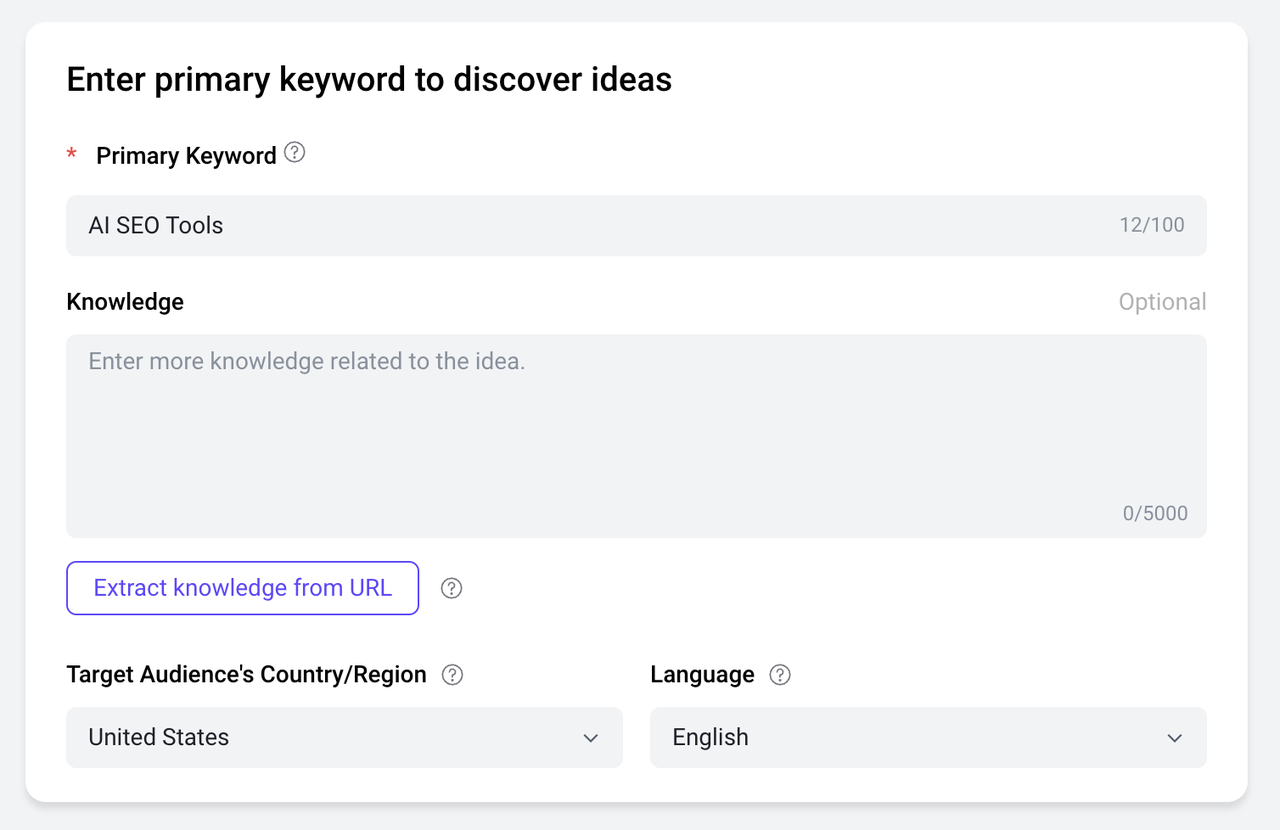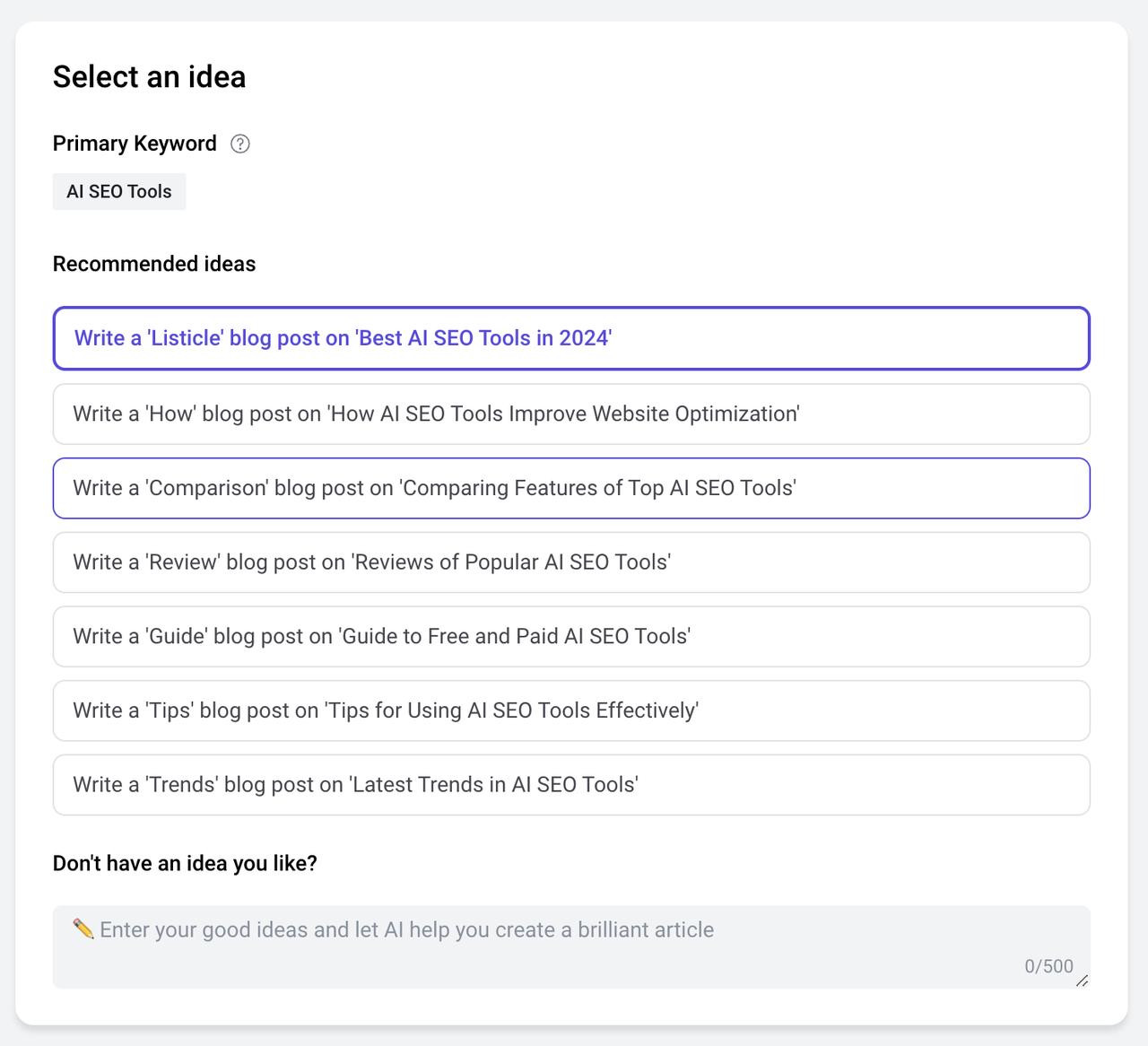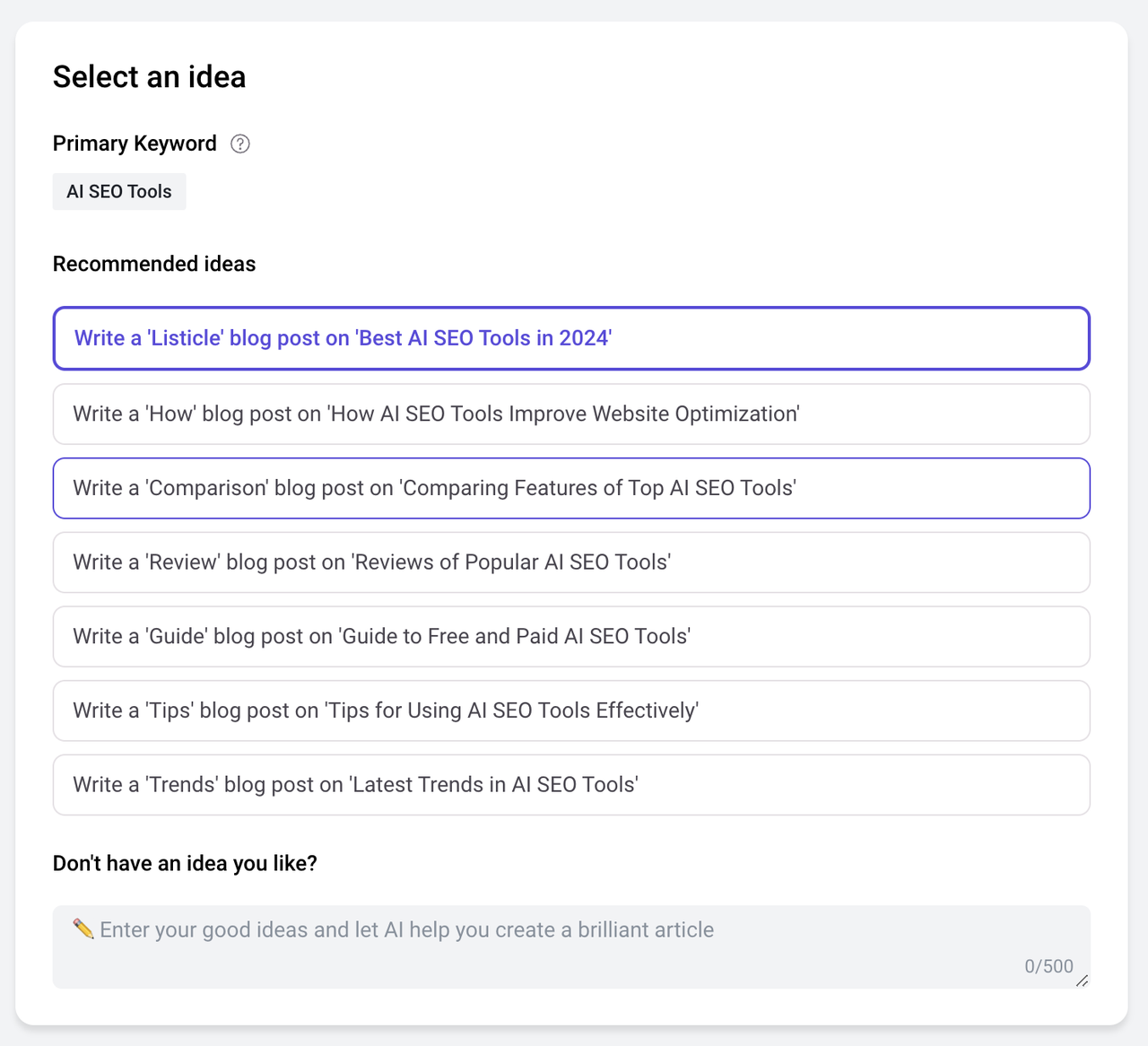What are keywords, topics, and differences?
We all have this understanding that in search engine optimization (SEO), content is key. At the same time, in the process of building content, we also need to know the concepts of keywords and topics, as well as their different roles and their impact on SEO in content optimization.
Definition of both
What are the keywords in SEO?
Keywords are words or phrases entered by users in search engines to find specific information. They act as the the bridge between user requests and content.
What is the topic in SEO?
Topic is the core idea or theme around which the content revolves, helping search engines understand the overall direction of the content. In contrast, keywords may be more vague and usually consist of a few words, while the theme is usually a sentence that expresses a more precise meaning.
What's the difference between the two?
Keywords (Word):

Topic:

Among them: 'Listcle' is the article type; 'Best AI SEO tools in 202' is the Topic. Here's how you can differentiate the two of them.
| Difference | Key words (Keyword) | Theme |
|---|---|---|
| Scale | Single query | The theme may contain several keywords |
| Purpose | Very relevant to search engines | Related to the content itself, it is easier to express people's subjective intentions |
| Intention | Represents a clear search intent | The coverage will be broader and closer to human semantics |
| Flexibility | Keywords need to be carefully selected (more relevant to search engines). | More flexible in presentation |
Why switch from keywords to topics?
With Google's algorithm update, search engines pay more attention to the semantics and relevance of content. Content is key, and it will increasingly be the driving force of search engine optimization (SEO) in the future. Understanding the difference between themes and keywords is very important for SEO strategies. Topics are broad themes around which content revolves, while keywords are specific words entered by users in search engines. Keywords are used to optimize search rankings, especially for specific searches, while themes provide direction for content, helping to establish website structure and theme authority. Focusing on themes helps improve visibility in search results, enhance website authority in search engines, and avoid negative effects caused by keyword stuffing.
How to use QuickCreator
Starting from writing about keywords, QuickCreator will help users search for a large amount of content on the Internet, learn with AI, and provide feedback to readers on topics related to these keywords. After readers make their choices, they can proceed to the next writing process. Let's take an example: suppose we use the input keyword "AI SEO tools".

QuickCreator will search, read and analyze online articles, and summarize the following topics:

We can analyze the writing and commercial intentions of these topics
| Topic | Writing | Writing intention | Commercial intent |
|---|---|---|---|
| Write a 'Listicle' blog post on 'Best AI SEO Tools in 2024' | Listcle | List a series of tools and provide advantages and disadvantages, comparisons, etc. of different tools | Informational/Commercial |
| Write a 'How' blog post on 'How AI SEO Tools Improve Website Optimization' | How to | How to use AI SEO Tools to optimize articles and guide users to use the tools well | Informational |
| Write a 'Review' blog post on 'Reviews of Popular AI SEO Tools' | Review | Review the development history of AI SEO tools and guide users to understand history | Informational |
| Write a 'Guide' blog post on 'Guide to Free and Paid AI SEO Tools' | Guides | Guide users to choose "Free" and "Paid" AI SEO Tools | Commercial |
| Write a 'Tips' blog post on 'Tips for Using AI SEO Tools Effectively' | Tips | How to use AI SEO Tools more efficiently, guiding users to use the tools well | Informational |
| Write a 'Trends' blog post on 'Latest Trends in AI SEO Tools' | Trends | Looking ahead to the future of AI SEO tools, guiding users to have correct expectations for the future | Informational |
Summary
Google's algorithm has evolved significantly in recent years, becoming more complex. In order to better understand the context and intent behind user search queries, Google no longer relies solely on keyword matching, but instead seeks content that comprehensively covers specific topics and provides value to searchers. When a website is optimized around a theme, the content naturally includes various related keywords, synonyms, and phrases. We found that the theme is broader and covers many related contents, while keywords are clearly targeted phrases in the content. Focusing on the theme rather than keywords is consistent with the ultimate goal of SEO - to provide valuable, engaging, and relevant content to the audience. QuickCreator will help users further optimize and generate topic-oriented content based on keywords. These contents may attract visitors to your website, be more valuable and attractive, further retain readers and encourage them to return.